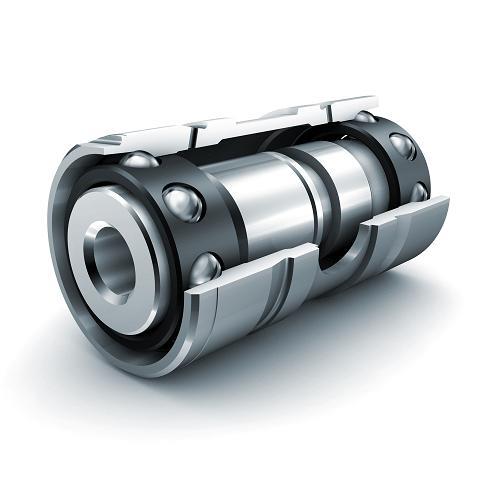The company said that production was shifted there from Plymouth (at Barden Corp). The Welsh plant is deemed more suitable to high volume, high speed, lower cost production of high precision components, due to changing market conditions, a shift in customer requirements and an increase in worldwide demand for turbocharger ball bearings.
Klaus Cierocki, president of Schaeffler’s engine systems business division comments: “The trend in the automotive industry towards cleaner powertrain solutions requires multiple steps and technologies. The fundamental foundation in achieving CO2 reductions at an economical cost-benefit ratio is still by optimising the conventional internal combustion engine. Downsizing of the engine leads to more opportunities for turbocharger applications.”
Schaeffler UK’s manufacturing plant in Llanelli produces mechanical tappets for the automotive industry. Established in 1957, it employs 250 people. A recent investment programme in new plant and machinery worth tens of millions of pounds has now allowed the company to supply surface coated engine components that lower fuel consumption and reduce CO2 emissions, whilst using a vacuum process (no CO2 is produced). Of the 20,000 square-metres of floor space at Llanelli, around 5,000 square metres has been transformed into production space for turbocharger ball bearings.
Plant manager Dr Dave Bate states: “We expect the demand for turbocharger ball bearings to increase over the next five years to reach millions. This demand will come from multiple turbocharger customers worldwide. This is therefore a great opportunity for the Llanelli plant to secure its future by expanding its portfolio of products. This is just the beginning of the plant redefining and repositioning itself for the future.”
With tighter legal restrictions on engine CO2 emissions and an increasing mismatch between energy consumption and available resources, improvements need to be made to existing automotive technologies and to developing reduced friction, more energy efficient, greener alternatives.
Bate continues: “Manufacturers of turbochargers are being asked to provide more compact, higher efficiency turbocharging systems that are more reliable, durable and affordable. Originally, these turbochargers were required for just high-end passenger cars, light duty and heavy duty trucks, but we are now seeing a shift in demand to include passenger cars with smaller, highly efficient engines with lower CO2 emissions and improved fuel consumption. This has led to an increase in global demand for ball bearing guided turbochargers.”

Turbocharger ball bearings are angular contact bearings that utilise ceramic balls, metallic cages, anti-rotation device, an outer ring, a compressor inner ring, a turbine inner ring and a series of oil flow control jets. The bearings rotate in excess of 150,000 rpm. In hot shutdown conditions, these bearings can also reach temperatures of up to 400°C. The bearing is designed to be cooled by the lubricating oil flow and the bearing materials must resist extreme conditions at all times over the complete life of the turbocharger.
Ball bearing turbochargers are said to be particularly superior to joined bearing turbocharger systems during the first minute of an engine cold start, as they do not require the lubricating oil to heat up.
Over the last year or so, Llanelli has invested much time and resources in preparing the new turbocharger bearing production line and in training its workforce. The plant manager says: “Training has been critical. Following a rigorous selection procedure, we chose five people to lead our turbocharger ball bearing production at Llanelli. This team has a unique blend of skills that we believe are important. These are the guys who will set up and operate the machines. However, as demand for the bearings increases, they will take a step back and become supervisors of the new members of the team, training and supporting them as required.”
The Schaeffler locations in Plymouth, Llanelli and the headquarters in Herzogenaurach, Germany, worked together on the move.
“Schaeffler’s innovative ball bearing solutions can improve fuel efficiency by up to 2.5 per cent. Very tight tolerances combined with innovative manufacturing processes have been established to support this newly developed market segment. We have therefore extended our production portfolio in our Llanelli plant, which offers highly committed, experienced and talented employees to make this a real success,” concludes Cierocki.




